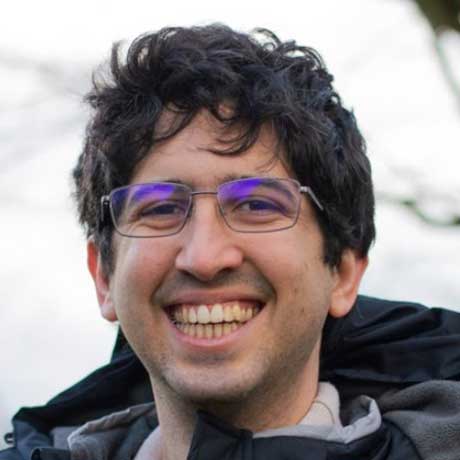- Prospective Applicants
-
Current PhD Researchers
- Careers and Opportunities
- Careers
- Go Global
- Science Shop
-
Supervisors
- Find a PhD
- PhD Manager
The UK government is committed to decarbonising all sectors of its economy to meet their Net-Zero target by 2050. With the telecommunications industry attributing 90% of their emissions to indirect activities, including energy consumption, it is of great importance that a new generation of brilliant engineers to work towards disruptive Radio Frequency (RF) technologies which will provide a more efficient use of energy whilst improving the connectivity between users.
For this PhD project, the student will investigate the state-of-the-art of technologies that will contribute towards Net-Zero in mobile communications, including but not limited to: Reconfigurable-Intelligent-Edges (RIE), Intelligent-Reflective-Surfaces (IRS) and Electromagnetic-Skins. These technologies comprise a range of solutions proposed to reduce the deployment of multiple expensive and high-power antennas being deployed to ensure seamless connection between the user and the network provider. RIEs, IRS and Electromagnetic skins are currently investigated as future green-wireless technologies, which range from structures at the edge of buildings to special electronically controlled surfaces strategically placed on walls, with the intention of dynamically/statically redirecting the signal towards where it is needed the most. Therefore, the successful study and development of these wireless aid devices will considerably reduce the energy consumption and costs of current and future wireless networks.
The candidate will work with industry leading electromagnetic simulation software to develop exciting and disruptive devices, optimising and evaluating their wireless performance (such as signal coverage) provided by the designed devices. Additionally, they will have the opportunity to use new state-of-the-art mmWave testing and measurement facilities in Belfast, funded by EPSRC, and will have opportunities to collaborate with researchers from the SenComm Research Lab, besides liaising with industries within the UK.
It is necessary that the candidate has skills with Matlab and has attended modules involving RF devices/electromagnetic theory. Experience with electromagnetic simulation software is not necessary, but desirable.
Applicants should hold, or expect to obtain, a First or Upper Second Class Honours Degree in a subject relevant to the proposed area of study.
We may also consider applications from those who hold equivalent qualifications, for example, a Lower Second Class Honours Degree plus a Master’s Degree with Distinction.
In exceptional circumstances, the University may consider a portfolio of evidence from applicants who have appropriate professional experience which is equivalent to the learning outcomes of an Honours degree in lieu of academic qualifications.
If the University receives a large number of applicants for the project, the following desirable criteria may be applied to shortlist applicants for interview.
The University is an equal opportunities employer and welcomes applicants from all sections of the community, particularly from those with disabilities.
Appointment will be made on merit.
The University offers the following levels of support:
The scholarship will cover tuition fees at the Home rate and a maintenance allowance of £19,237 (tbc) per annum for three years (subject to satisfactory academic performance).
This scholarship also comes with £900 per annum for three years as a research training support grant (RTSG) allocation to help support the PhD researcher.
Due consideration should be given to financing your studies. Further information on cost of living
[1] Y. Zhang et al., "Beyond Cell-Free MIMO: Energy Efficient Reconfigurable Intelligent Surface Aided Cell-Free MIMO Communications," in IEEE Transactions on Cognitive Communications and Networking, vol. 7, no. 2, pp. 412-426, June 2021, doi: 10.1109/TCCN.2021.3058683.
[2] M. Bashar, K. Cumanan, A. G. Burr, H. Q. Ngo, E. G. Larsson and P. Xiao, "Energy Efficiency of the Cell-Free Massive MIMO Uplink With Optimal Uniform Quantization," in IEEE Transactions on Green Communications and Networking, vol. 3, no. 4, pp. 971-987, Dec. 2019, doi: 10.1109/TGCN.2019.2932071.
[3] H. Q. Ngo, L. -N. Tran, T. Q. Duong, M. Matthaiou and E. G. Larsson, "On the Total Energy Efficiency of Cell-Free Massive MIMO," in IEEE Transactions on Green Communications and Networking, vol. 2, no. 1, pp. 25-39, March 2018, doi: 10.1109/TGCN.2017.2770215.
[4] S. L. Cotton, M. A. B. Abbasi, G. G. Machado and O. Yurduseven, "Reconfigurable Intelligent Edges: Illuminating the Shadow Region in Wireless Networks," in IEEE Access, vol. 10, pp. 101732-101748, 2022, doi: 10.1109/ACCESS.2022.3206013.
[5] Z. Li, H. Hu, J. Zhang and J. Zhang, "RIS-Assisted mmWave Networks With Random Blockages: Fewer Large RISs or More Small RISs?," in IEEE Transactions on Wireless Communications, vol. 22, no. 2, pp. 986-1000, Feb. 2023, doi: 10.1109/TWC.2022.3200157
[6] A. Benoni, F. Capra, M. Salucci and A. Massa, "Toward Real-World Indoor Smart Electromagnetic Environments—A Large-Scale Experimental Demonstration," in IEEE Transactions on Antennas and Propagation, vol. 71, no. 11, pp. 8450-8463, Nov. 2023, doi: 10.1109/TAP.2023.3305053.
[7] G. Oliveri, M. Salucci and A. Massa, "Features and Potentialities of Static Passive EM Skins for NLOS Specular Wireless Links," in IEEE Transactions on Antennas and Propagation, vol. 71, no. 10, pp. 8048-8060, Oct. 2023, doi: 10.1109/TAP.2023.3301654.
[8] BT, Accentury, “The Role of ICT in Reducing Carbon Emissions in the UK,” 2016. [online]. Available: https://www.bt.com/bt-plc/assets/documents/digital-impact-and-sustainability/our-approach/our-policies-and-reports/uk-carbon-targets-may-2016.pdf
Submission deadline
Monday 26 February 2024
04:00PM
Interview Date
March 2024
Preferred student start date
16th September 2024

Telephone
Contact by phone
Email
Contact by email